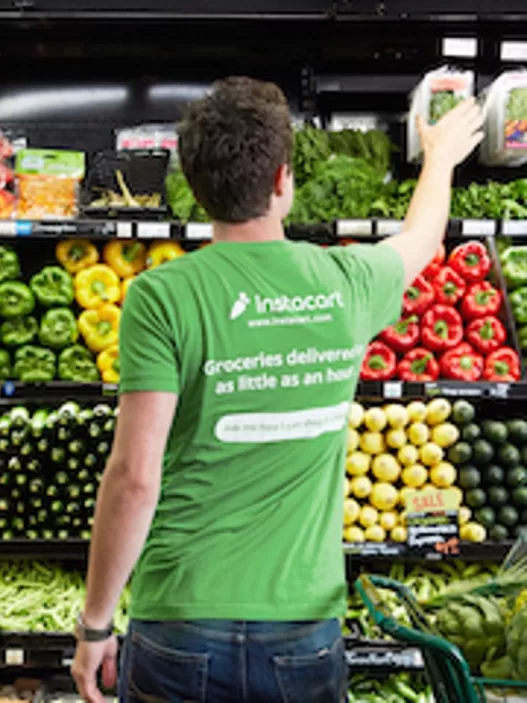
Look, SEO isn’t some magic trick—it’s a grind. If your website isn’t ranking, you’re basically invisible to potential customers. And with millions of websites fighting for attention, you need to play it smart or get buried in the search engine graveyard.
But don’t worry—I’ve got your back. Here are 10 rock-solid SEO strategies to help you climb those search rankings and pull in organic traffic like a pro.
1. Master the Art of Keyword Research (Because Guessing Won’t Cut It)
If you’re not targeting the right keywords, you’re talking to the wrong people. Period. You need to figure out what your audience is actually searching for and tailor your content around it.
How to do it right:
- Use Google Keyword Planner, Ahrefs, or SEMrush to dig deep into search trends.
- Find keywords with high search volume and low competition—the sweet spot.
- Sprinkle them naturally in your content, headings, and meta descriptions.
Pro Tip: Long-tail keywords (think “best running shoes for flat feet”) are gold—less competition, more conversions.
2. Optimize Your Site Structure (Because Google Loves Order)
Search engines (and humans) love a clean, easy-to-navigate website. A messy structure confuses both and kills your ranking.
Fix it with these steps:
- Keep URLs simple and logical (no “/page1234?x=5”).
- Use descriptive headings (H1s, H2s) for easy readability.
- Create a sitemap and submit it to Google Search Console.
- Interlink pages strategically—help users (and bots) find related content.
Pro Tip: Your site should be organized like a well-stocked grocery store—everything easy to find, no junk aisles.
3. Content is Still King (But Only If It’s Good)
Here’s the deal—Google rewards websites that provide valuable, engaging content. So stop cranking out fluff and start creating content people actually care about.
Winning content formula:
- Use your target keywords naturally (no keyword stuffing, please).
- Write for your audience, not robots—be helpful, clear, and engaging.
- Use visuals like images and videos to keep things interesting.
- Drop internal and external links to credible sources.
Pro Tip: If your content isn’t worth sharing, it’s not worth posting.
4. Speed = Money (So Make Your Website Faster)
A slow website = frustrated visitors bouncing faster than you can say “SEO.” Google hates slow sites, and so do your potential customers.
Speed it up:
- Compress images with tools like TinyPNG.
- Minify CSS and JavaScript files—keep things lean and mean.
- Use a Content Delivery Network (CDN) to boost load speeds globally.
- Enable browser caching to reduce repeat load times.
Pro Tip: If your site takes longer than 3 seconds to load, you’re already losing visitors. Fix it.
5. Get Social—SEO Loves It
Social media isn’t just for selfies and food pics—it’s a powerful SEO tool. When your content gets shared, it signals Google that your site is legit.
How to win on social:
- Share blog posts, product pages, and updates consistently.
- Engage with your audience—comments, DMs, polls, whatever works.
- Use trending hashtags to boost visibility.
- Run social ads to amplify your reach.
Pro Tip: Social proof matters. If people are talking about you, Google takes notice.
6. Backlinks: Quality Over Quantity
Backlinks = credibility. When high-authority sites link to you, Google sees you as trustworthy and authoritative. But not all backlinks are created equal.
How to build them the right way:
- Create epic content that naturally attracts links (think guides, case studies).
- Reach out to industry blogs for guest posting opportunities.
- Use broken link building—find dead links and offer your content as a replacement.
Pro Tip: A backlink from a trusted site beats 100 links from shady directories. Stay classy.
7. Local SEO = More Foot Traffic (If You Have a Physical Location)
If you’re a local business and not using local SEO, you’re basically leaving money on the table.
Here’s what to do:
- Claim and optimize your Google My Business profile (this is a MUST).
- Use local keywords in your content (e.g., “best coffee shop in Toronto”).
- Get listed on directories like Yelp and Yellow Pages.
- Encourage happy customers to leave reviews—Google loves reviews.
Pro Tip: Location-specific landing pages work wonders for city-based searches.
8. Track Everything (Because Numbers Don’t Lie)
SEO isn’t a guessing game—data is your best friend. Tracking your site’s performance helps you see what’s working and what’s a waste of time.
What to monitor:
- Traffic sources: Where are visitors coming from?
- Bounce rate: Are they sticking around or leaving immediately?
- Conversion rate: Are visits turning into sales or leads?
- Keyword rankings: Are you moving up or slipping down?
Pro Tip: Set up Google Analytics and Search Console ASAP. No excuses.
9. Schema Markup = Google’s VIP Pass
Schema markup helps search engines understand your content better, leading to rich snippets (think stars, FAQs, product info). Rich snippets = more clicks = more traffic.
How to use schema effectively:
- Mark up products, reviews, events, and business details.
- Use Google’s Structured Data Testing Tool to ensure it’s implemented correctly.
- Add schema to boost local SEO (hours, address, etc.).
Pro Tip: Rich snippets make you stand out in search results—use them to your advantage.
10. Stay in the Loop (SEO Changes All the Time)
What worked last year might be useless today. SEO is always evolving, so stay updated or risk falling behind.
How to stay ahead:
- Follow industry leaders like Moz, Search Engine Land, and Neil Patel.
- Join SEO communities on Reddit, LinkedIn, and Slack.
- Attend SEO webinars and conferences for insider knowledge.
Pro Tip: Continuous learning is the name of the game—stay hungry, stay informed.
Final Thoughts: SEO is a Marathon, Not a Sprint
Improving your website’s SEO isn’t about quick wins—it’s about consistent effort, smart strategies, and staying patient.
By following these 10 strategies, you can:
✅ Increase your visibility in search results
✅ Attract more organic traffic
✅ Convert more visitors into customers
So, what are you waiting for? Start optimizing and start winning.
Got questions? Drop them below, and let’s talk SEO!
















